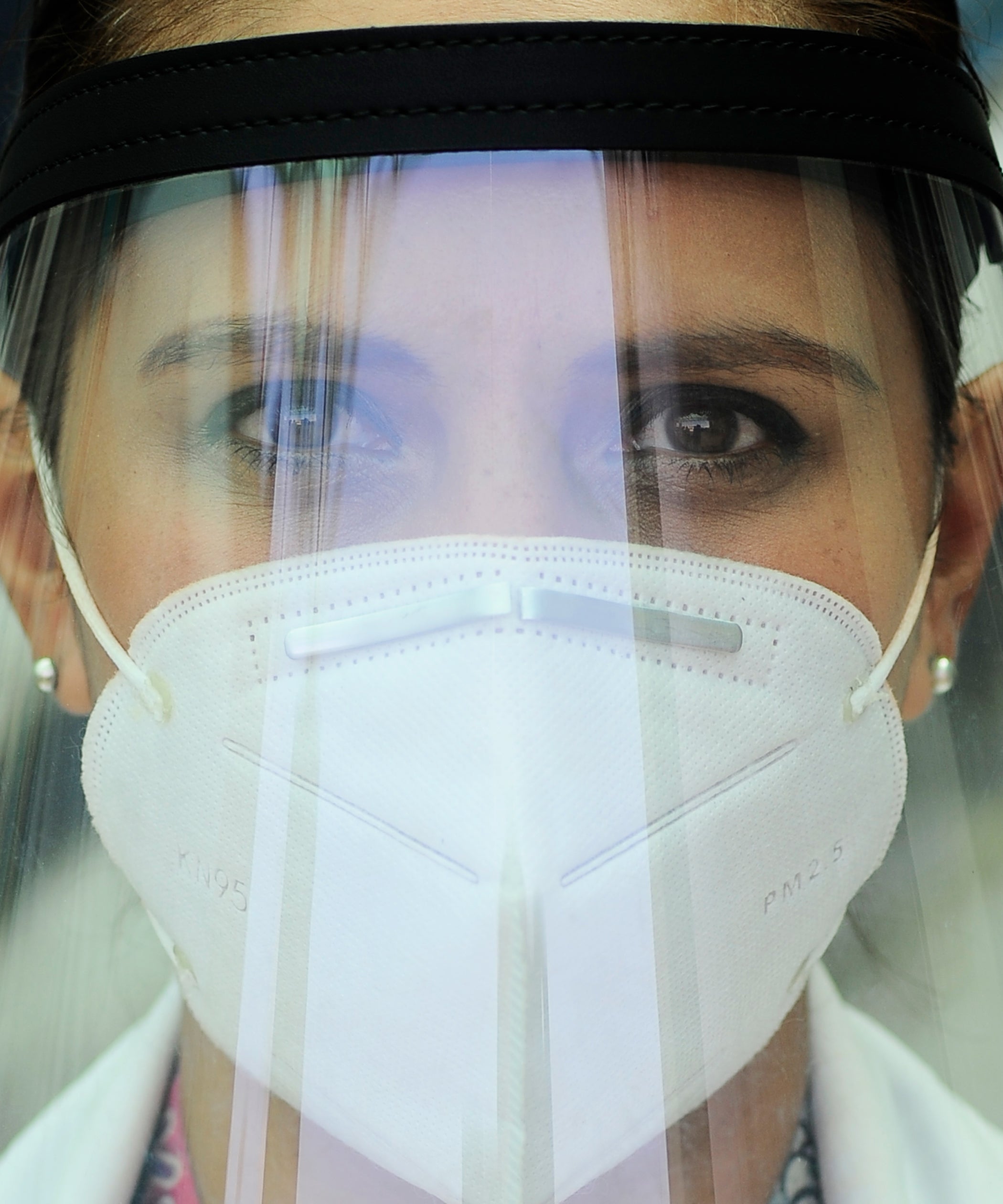Are Face Shields The New Face Masks?
by Elizabeth Gulino
Back in April, the Centers for Disease Control and Prevention made it official: Everyone should be wearing a cloth face mask "in public settings where other social distancing measures are difficult to maintain," to slow the spread of coronavirus. But more recently, you may have noticed people are wearing another form of face covering: clear plastic visors that extend from forehead to neck. Many people are donning them in addition to their usual mouth-and-nose mask; others are ditching the face mask and only wearing the visors.
These plastic shields qualify as personal protective equipment, and are often used by doctors and healthcare workers in hospitals. They act like physical barriers, providing additional protection to the facial area and mucus membranes (including the eyes, nose, and lips).
Last month, an opinion article published in JAMA argued that there could be many benefits to encouraging everyone to wear these face shields. The three doctors who wrote the article made some pretty valid points: Face shields are easier to disinfect than cloth masks, they prevent the wearer from touching even more areas of their face than a cloth mask might, and they're easier to breathe in. People also tend to remove their cloth masks when they're talking to people. "The use of a face shield is also a reminder to maintain social distancing, but allows visibility of facial expressions and lip movements for speech perception," the researchers write.
They're also very effective at blocking exposure to the virus. In a simulation study, face shields were able to reduce immediate viral exposure by 96% when worn by a simulated health care worker within 18 inches of a cough.
But — that doesn't mean you should hop on the internet and purchase one right now.
"Plastic is a much better barrier than a cloth mask as the infection can still be transmitted through cloth. But [the shields] aren’t as accessible," explains Ehsan Ali, MD, who practices in Beverly Hills. "Unless you are in healthcare, you shouldn’t wear one."
Dr. Ali says that there's still a shortage of PPE and plastic face shields available for healthcare workers, and non-essential workers don't really have a need to be wearing them.
If you'd like the comfort of a plastic face shield, Dr Ali says a face mask worn with some kind of goggles or eye covering (even sunglasses) would be sufficient.
Think of plastic face shields in the same way that we think of N95 masks. While those are the best options for protecting ourselves against the virus, it's a better idea to save that kind of equipment for people who are actually working on the frontlines of the pandemic.